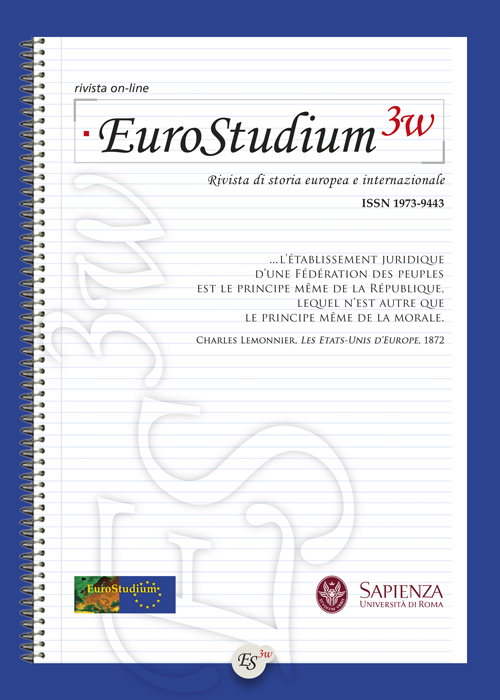Nineteenth-Century American Populism in Historical Perspective: Between Scholarship and Politics
Parole chiave:
Populism, US politics and society, American agriculture and global markets, HistoriographyAbstract
In the late nineteenth century Populism was a major feature of US politics and society. It originated as an agrarian revolt born in response to the crisis of American agriculture vis-à-vis industrialization and the opening of global markets for agricultural products. The ensuing Populist movement involved millions of farmers in the Southern and Mid-Western rural areas hit by the crisis and it spilled over into local and national elections, eventually spreading to other regions and including sections of the emerging middle class, thus posing a formidable challenge to the established two-party system. Though it ultimately failed to bring about an electoral realignment, its influence was nonetheless significant and long-lasting. The Populists instigated political and economic reforms for decades to come while actively partaking in the cultural transformations of the time. Populism, however, generated a culture that was both forward- and backward looking, and as it continued to affect politics over the course of the twentieth and early twenty-first century, its majoritarian impulse inspired new forms of democratic inclusion as well as threats to minorities and republican institutions. This complex phenomenon and its many ramifications have engaged generations of historians, whose political sensibilities changed as events unfolded and scholarly research proceeded. At a time when Populism has once occupied center stage in America, it is worth looking back at its origins and pondering how the historiography has tried to make sense of it.##submission.downloads##
Pubblicato
2022-03-02
Fascicolo
Sezione
Saggi e ricerche
Licenza
Copyright (c) 2022 Eurostudium3w

Questo lavoro è fornito con la licenza Creative Commons Attribuzione - Non commerciale - Condividi allo stesso modo 4.0 Internazionale.


